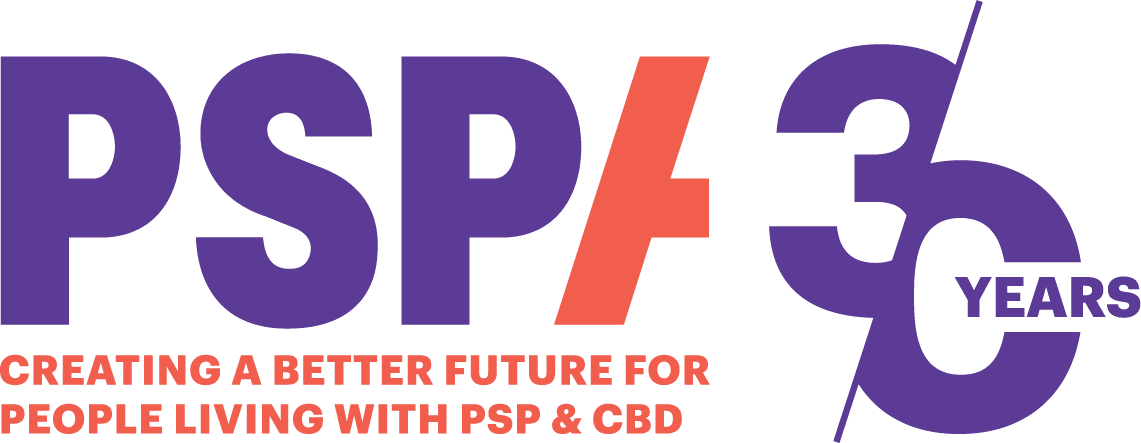Elizabeth Copp’s husband, Andy, was diagnosed with CBD just a month after his 65th birthday. Here Elizabeth shares her experience of caring for Andy.
On Monday 7 March 2016, just one month after my husband Andy’s 65th birthday, we were told by Andy’s consultant, that he had Corticobasal Degeneration (CBD).
“I’m so sorry,” she said, sounding really sympathetic, “this is not how you’d hoped to spend your retirement.”
I remember saying lightly that I was sure we would manage as we’d managed ok up to now, while all the time repeating the diagnosis in my head so that I wouldn’t forget it and could google it later. After this appointment, we decided to go to our favourite café for tea and cake to cheer ourselves up. I was determined to keep things as normal and happy as possible, while trying to stop the sinking feeling I had inside.
That evening, we were to eat early as I was going out to my writing group. Andy was setting the table while I stood with my back to him at the cooker. Suddenly there was a crash and Andy was lying on the floor, having hit his head on the back of the kitchen cupboard. He had knocked over a chair as well, when he fell backwards. We both got a big fright. I didn’t go out to my class and emailed apologies. Life was beginning to change markedly for both of us.
It had taken over two years to get this diagnosis. Things had started to go wrong in November 2013, when Andy came home after visiting friends and couldn’t keep the car in between the white lines on the carriageway. Looking back, I think that there were probably also problems with his balance some months before, which we had both brushed aside.
The ensuing visit to the GP after the car incident led to a referral to a consultant, three different brain scans over the space of two years, a visit to a urologist and a heart specialist, plus numerous visits to the GP. I cannot fault the attention that Andy was given, but the worst bit was waiting for appointments which took a long time to come and then having to wait a long time for the results of tests. Friends said that no news was good news, implying that if things were serious, we would have got a quicker test result. I knew, however, that something was very wrong. My husband was not the man he was. A diagnosis of hardening of the arteries had led to Andy being prescribed a statin. However, he had made no improvement on a daily statin and continued to deteriorate. So, in a funny sort of way, it was a relief to have a correct diagnosis at last. That evening, after Andy’s fall in the kitchen, I googled CBD. The shock of finding out what it was hit me hard.
Andy’s local consultant had suggested that he could see the neurologist in Aberdeen Royal Infirmary (ARI) to talk it over and have check ups if he would like, but we both chose not to do this. ARI is a large teaching hospital 50 miles away, and we were both really happy with the local team. Ailsa, the Occupational Therapist, was already coming to the house and offering practical help, due to Andy’s mobility problems. She had already referred him to the physio for exercises to do at home. There was a very good local team, which included nurses, who all knew each other and worked well together. So, we both decided to go down the practical route and make sure that our home was equipped to deal with Andy’s increasing mobility problem. We never had a crisis at home, for things were in place before we needed them. I remember Ailsa standing at the top of our narrow steps at the front door and saying “I want to do something about your steps.” She knew they were too narrow for Andy’s feet to go safely down them. It wasn’t long before we had a council worker widen the steps and then put up a handrail at the front door.
Ailsa then looked at the bathroom and organised the paper work for a grant to convert it to a wet room. That conversion went ahead smoothly with a local team of a joiner, electrician and plumber. My sister was staying with us at the time and thought the electrician looked like Brad Pitt, so she didn’t mind the upheaval during her visit!
By this time my daughter had discovered that there was a charity to support those with PSP and CBD, so I got in touch with them and we were given a support worker, David Mills, who covered all of Scotland. I had a quarterly phone call from him and appreciated his advice very much. I remember that he asked me during one call if I’d had a Carer’s Assessment.
“Oh, there’s no need for that!” said I, cheerfully. “I’m managing just fine.”
“I do advise you to do this,” replied David.
So, I went to my GP and before too long Andy had a carer coming twice weekly to help him with showers, which I had been doing up until then. I didn’t realise until the carer came, how good it was to have time to myself. Andy made it easy for me, for he didn’t fuss about another woman helping him to shower. Throughout his illness, he accepted all the help given with gentleness and grace, which made it much easier for me. I was so grateful to David for quietly insisting on this assessment, for I didn’t realise how quickly Andy’s condition would deteriorate. The fact that there was one carer in place already made it so much easier to increase the care when needed. The paperwork had already been filled in.
David also suggested that Andy apply for Attendance Allowance so I sent for the form, which was very long. It took some time to fill in and I remember saying to Andy that if he didn’t get Attendance Allowance with all the medication he was on, I’d eat my hat! Some weeks later Andy got a reply. He had been refused Attendance Allowance. We accepted this and thought no more about it. However, when David next phoned, I told him that Andy’s application had been refused. David was surprised and asked if we would like Marion, a local Parkinson’s support worker, to help with another application. (Due to the rarity of CBD, Parkinson’s and the PSPA support worker worked together in north-east Scotland). We said yes, so Marion came to the house, filled in the form and Andy was duly given Attendance Allowance. She also recommended having a Closomat toilet installed. Neither of us knew what this was but, when I asked Ailsa if we could have this (very expensive ) toilet, even though the paper work for the wet room had already been filed, she said we could. It was a godsend for Andy. Recently, I came across an email I wrote to our children after it was installed.
“With the new toilet you can have a normal flush or a Royal Flush!” I wrote. “I tell you this is some toilet!”
Our experience of living with CBD and the care Andy got was shared with PSPA and an article appeared in PSPA Matters in the winter edition of 2018. I prided myself on never having a crisis when Andy was ill for, as his condition worsened, the correct equipment was already in place and I had already learnt how to use it before it was needed.
Ailsa had recommended having a Stedy Stand Aid in the house and had arranged for two to be delivered to try out. I had been feeling overwhelmed, to be honest, by all the equipment in the spare room as well as, by this time, carers coming in four times a day to help. So, having to get used to pulling my husband from his bedroom to the kitchen or living room on a Stand Aid required not just muscle power, but was also an admission that things would get much worse. However, Susie, my wonderful, home help who did the ironing and house cleaning while I looked after Andy’s needs, also worked in a local care home.
“Come on!” she said cheerfully, when I told her of my worry, “I’ll show you what to do. We use them in the care home. They’re great!”
So not long after that, when the morning carer shouted for help when Andy’s legs gave way in the bathroom and he couldn’t walk, I knew exactly how to use this aid and between the two of us we could get Andy into the bedroom.
Writing this down, two years after my darling husband passed away peacefully at home in his own bed, brings a lot back. I’m not pretending it was easy, even though we had first class care, for it’s very hard to watch someone you love deteriorate so quickly. It was also hard, to be honest, to never feel the house was mine. Latterly, carers were coming in four times a day and sometimes not leaving until late in the evening. Community nurses also came in frequently in the last weeks. With so much going on, I didn’t always sleep well, but an overnight stay from a Marie Curie nurse, latterly, guaranteed a good night’s sleep, which helped a lot.
I have long felt that if you can’t change something, you have to accept it, and that outlook helped us both to stay calm and cheerful until the end. Right at the beginning, the Parkinson’s nurse had advised us not to look too far down the road and to take one day at a time and that’s exactly what we did. We also looked for joyful moments in each day. Each evening, we told each other three good things which had happened that day despite this awful illness. They were always simple things, like a blackbird singing outside the window or sunlight on leaves or a cheery smile from a carer, but they focussed us on the positive and that positivity helped both of us enormously.
Caring for someone you love is very hard, emotionally and physically. It is draining. I was exhausted afterwards and it took some time to recover, so I strongly recommend getting as much support as you can if you choose to look after your partner at home. Yet this horrible illness brought us very close together and showed us what matters in life – love. Andy, even while he was dying, gave me the gift of appreciating everything we did together. That is a wonderful gift to be given.

